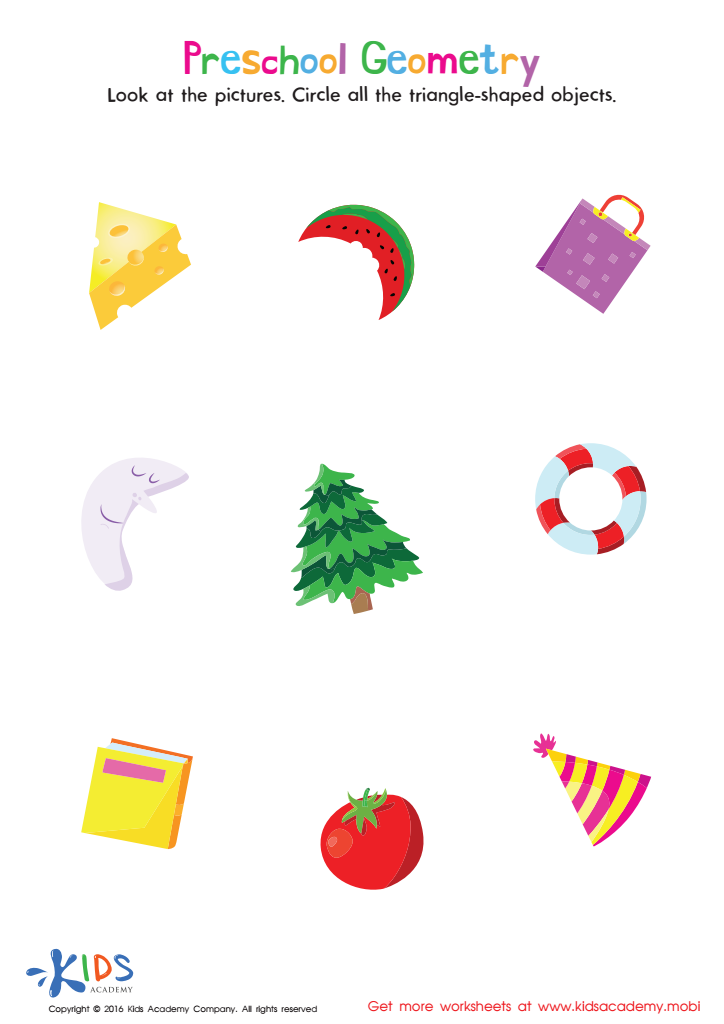Shape Recognition Normal Geometry Worksheets for Ages 3-9
30 filtered results
-
From - To
Introduce your little learners to the world of shapes with our engaging shape recognition worksheets designed for ages 3-9. These geometry worksheets from Kids Academy make learning fun and interactive, helping children identify and understand different shapes like circles, squares, triangles, and more. Perfectly tailored for various learning stages, these activities enhance visual differentiation, pattern recognition, and critical thinking. Prepare your kids for school success by exploring our diverse selection of worksheets that combine educational concepts with playful practice. Spark their curiosity and watch their confidence grow as they master shape recognition with ease.
Discover our shape worksheets now!
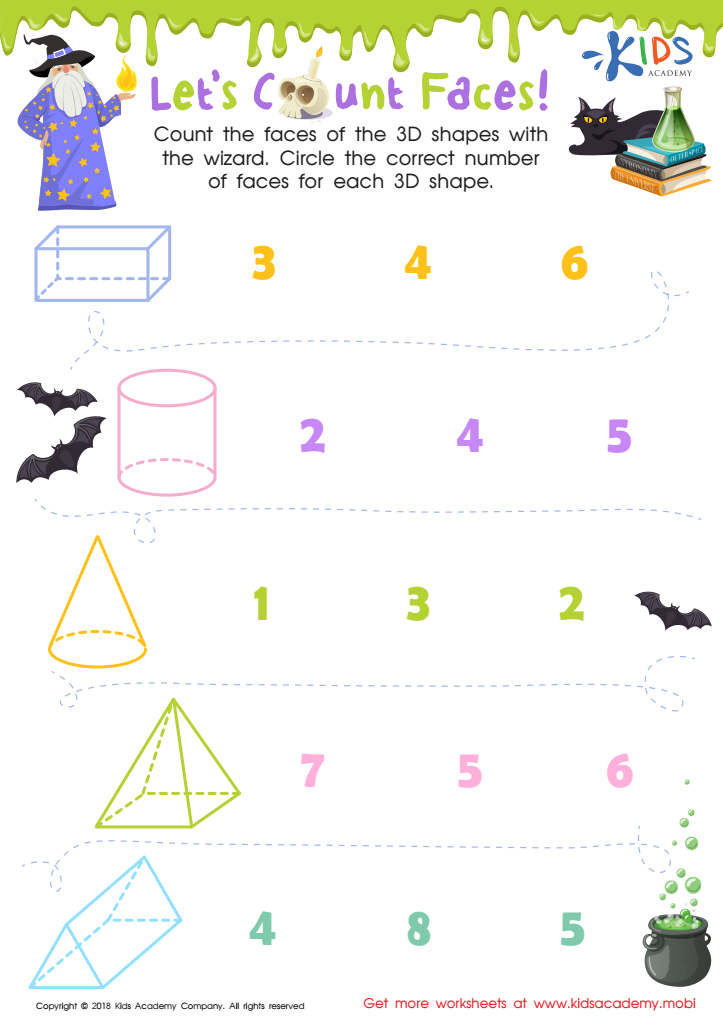

Let's Count Faces! Worksheet
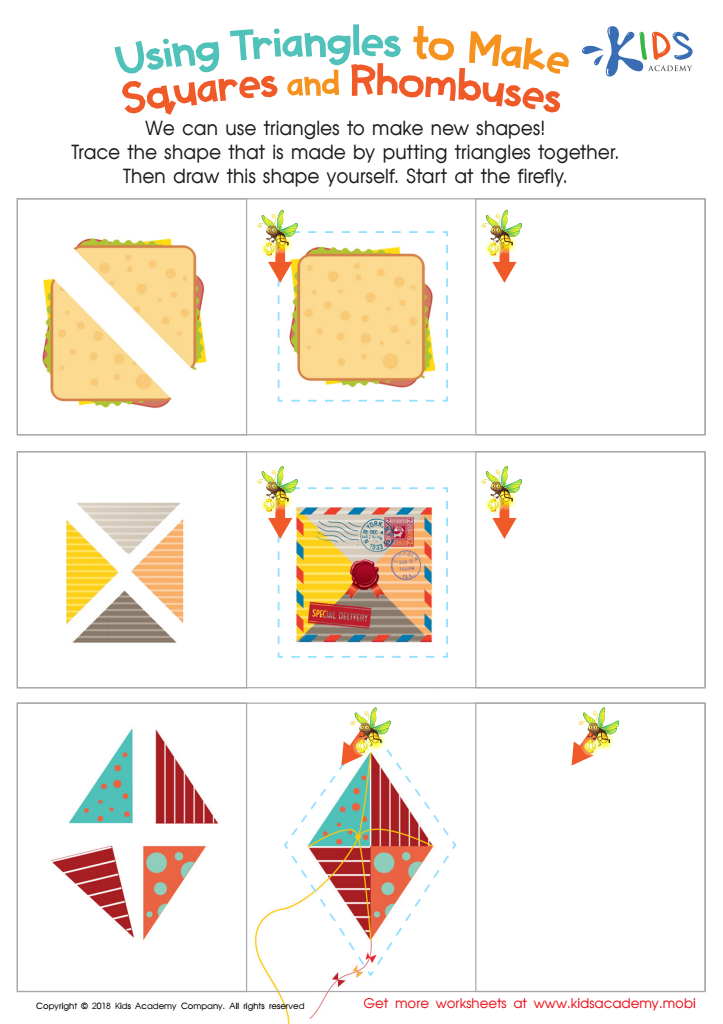

Using Triangles to Make Squares and Rhombuses Worksheet
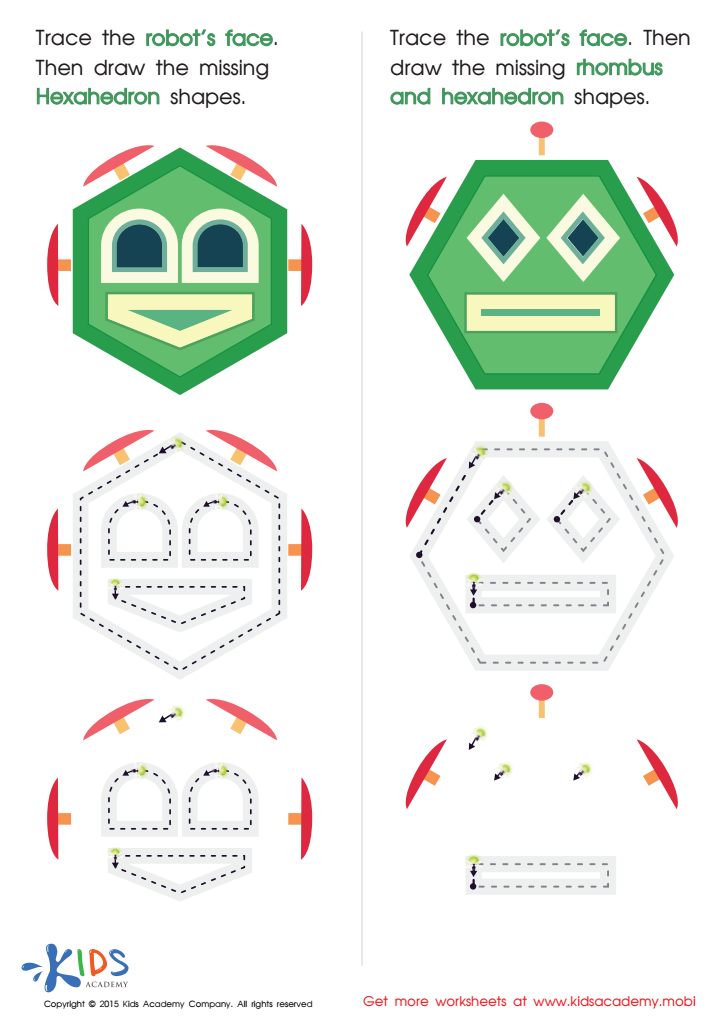

Practice Drawing Hexahedrons And a Rhombus Worksheet
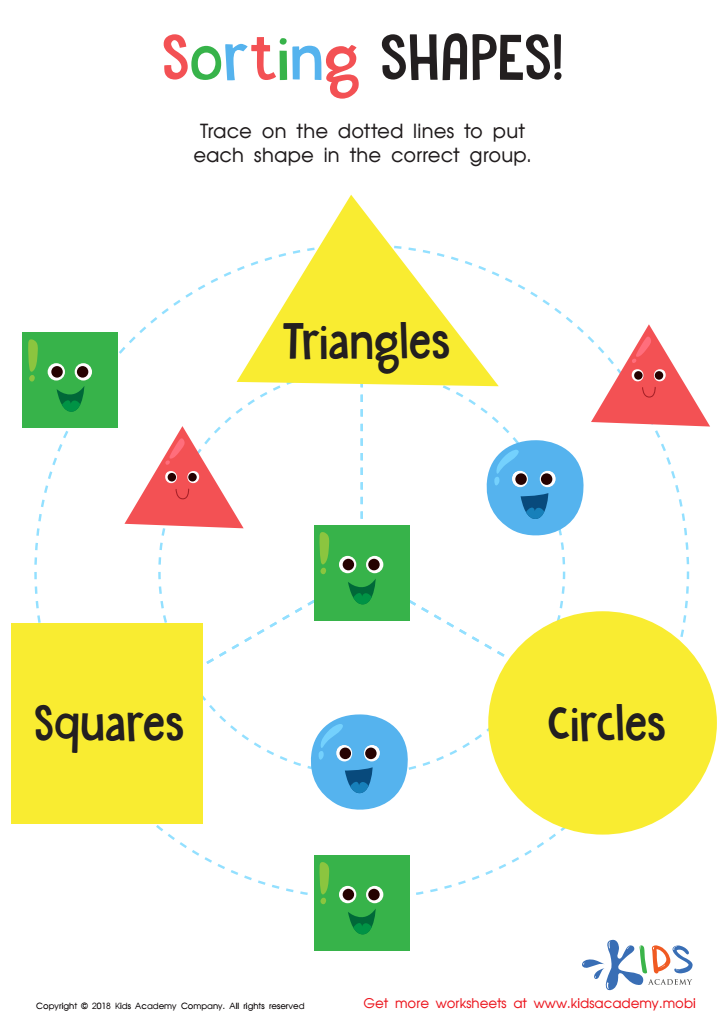

Sorting Shapes - Part 3 Worksheet
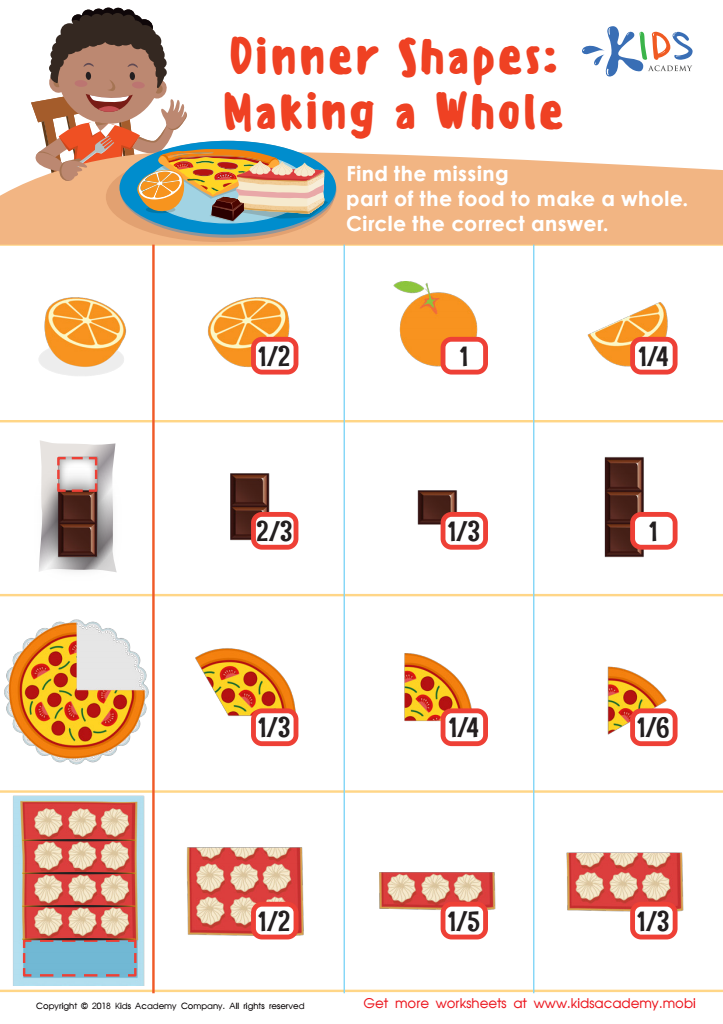

Dinner Shapes: Making a Whole Worksheet
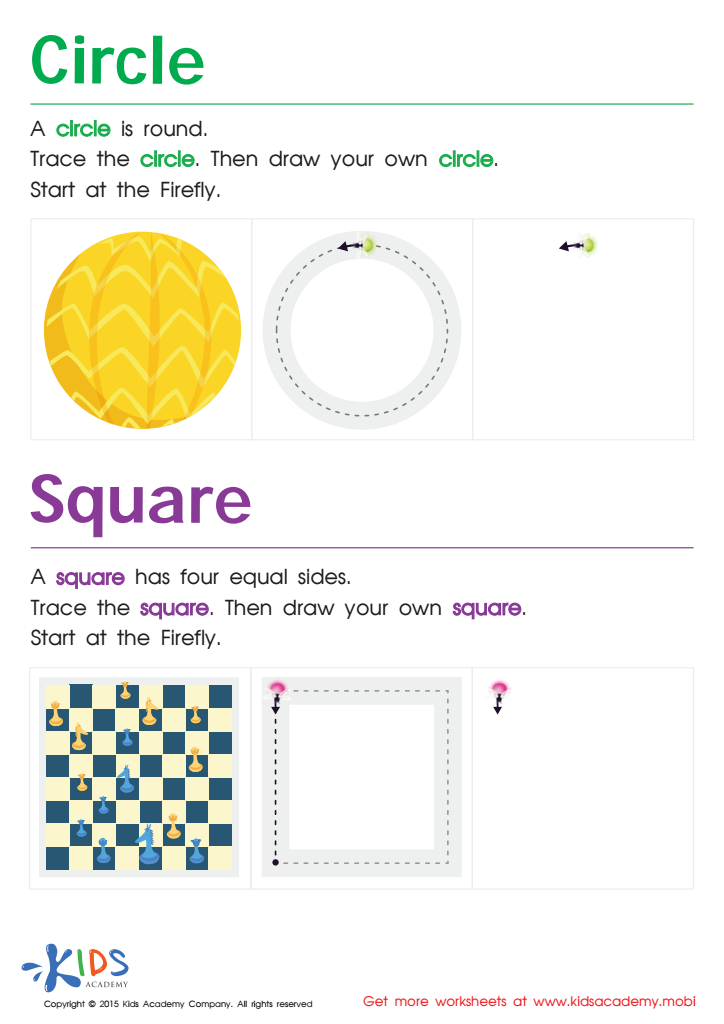

Trace And Draw a Circle And a Square Worksheet
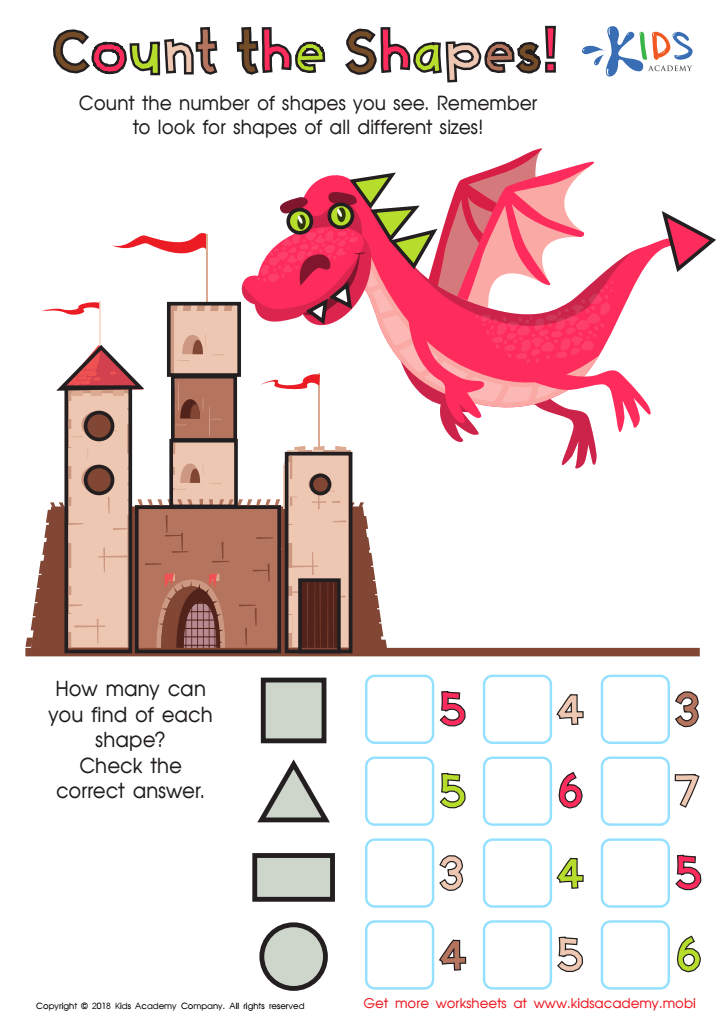

Count the Shapes Worksheet
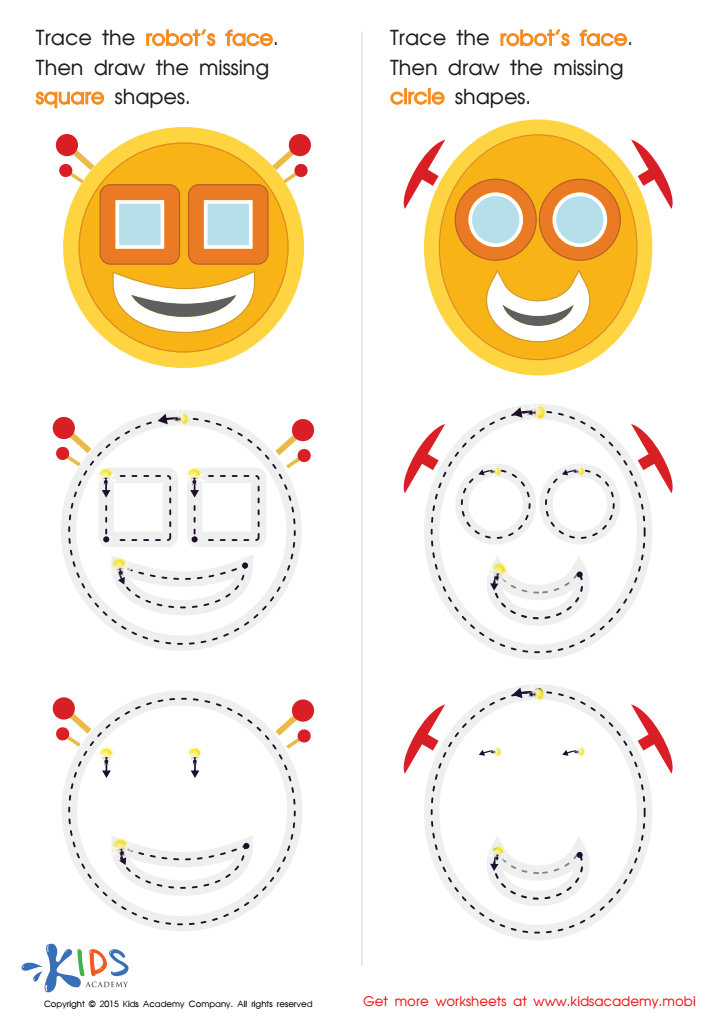

Practicing to Draw Circles And Squares Printable
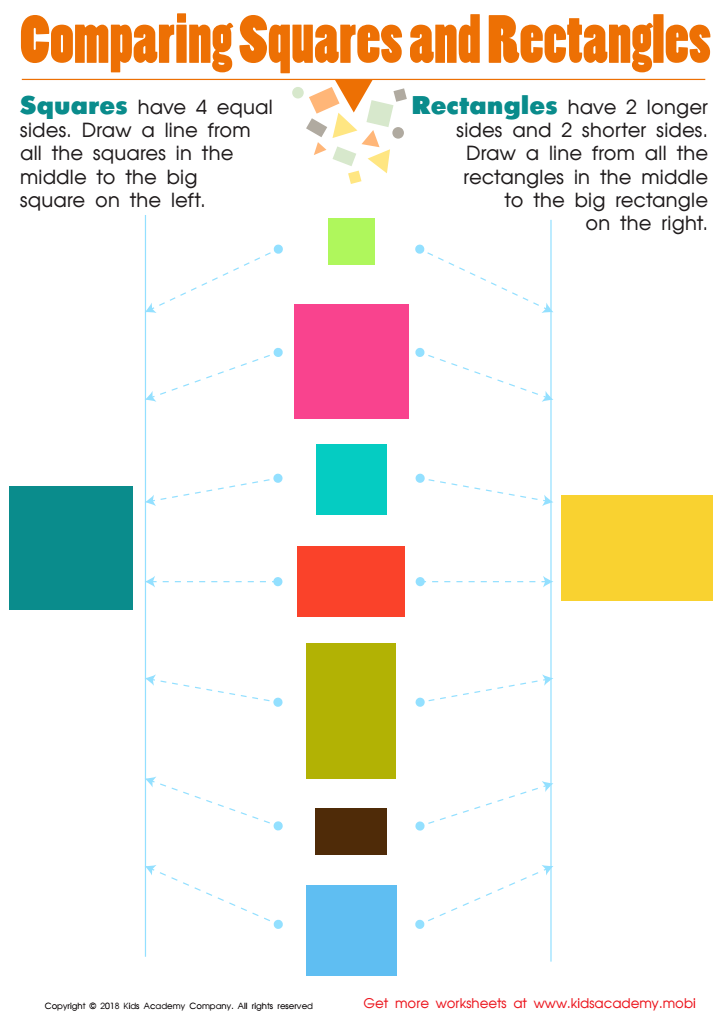

Comparing Squares Rectangles Worksheet
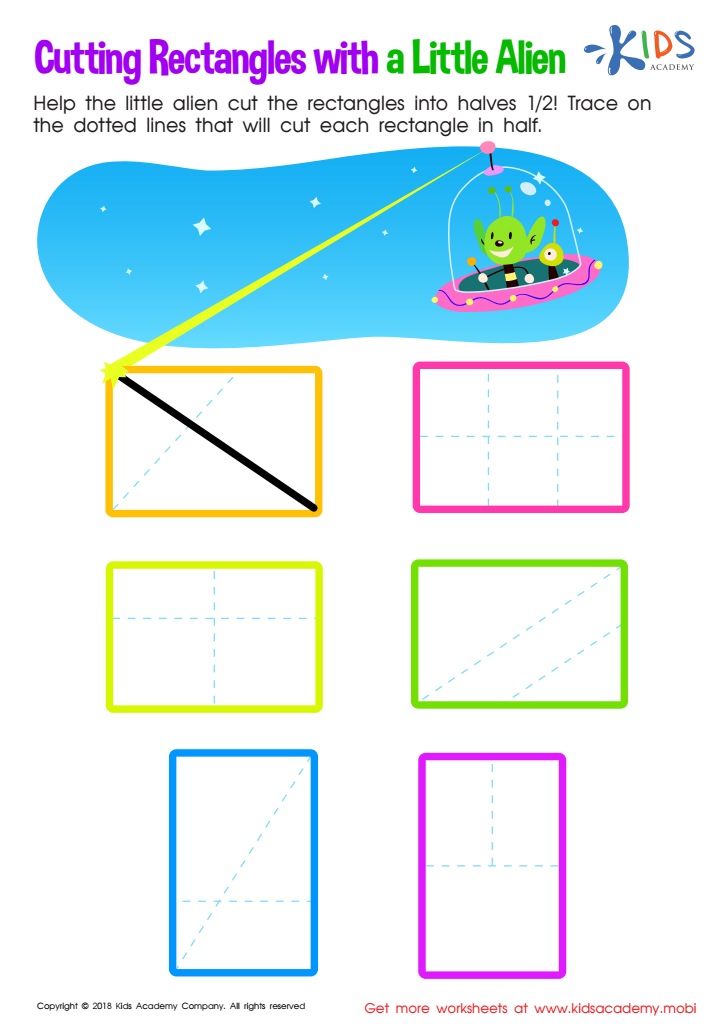

Cutting Rectangles with Alien Worksheet
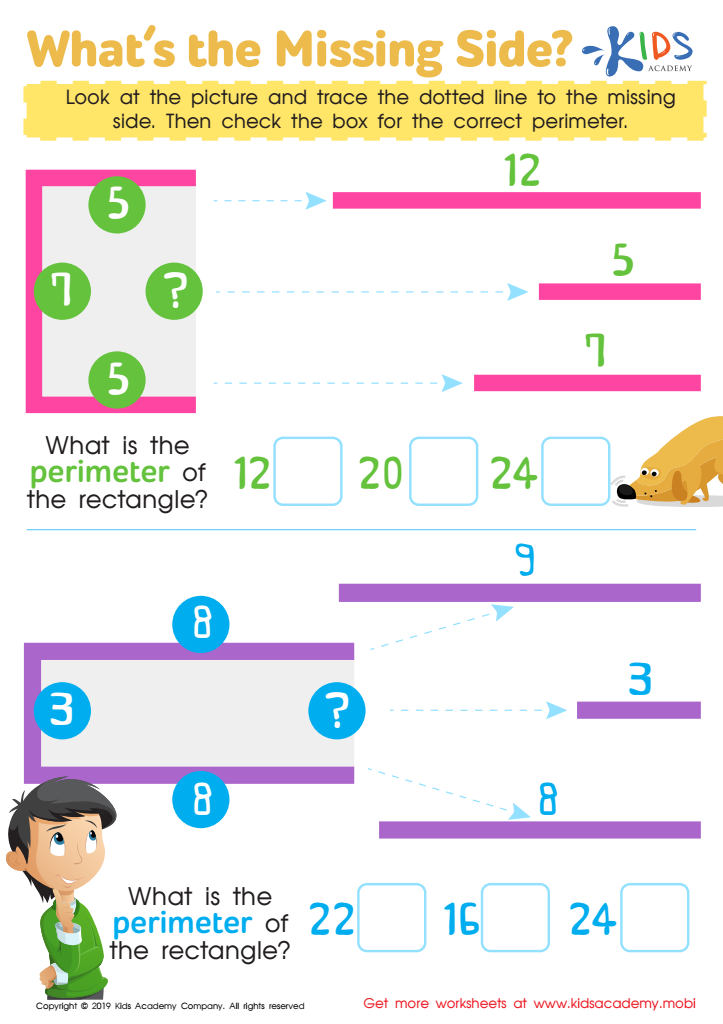

What's the Missing Side Worksheet
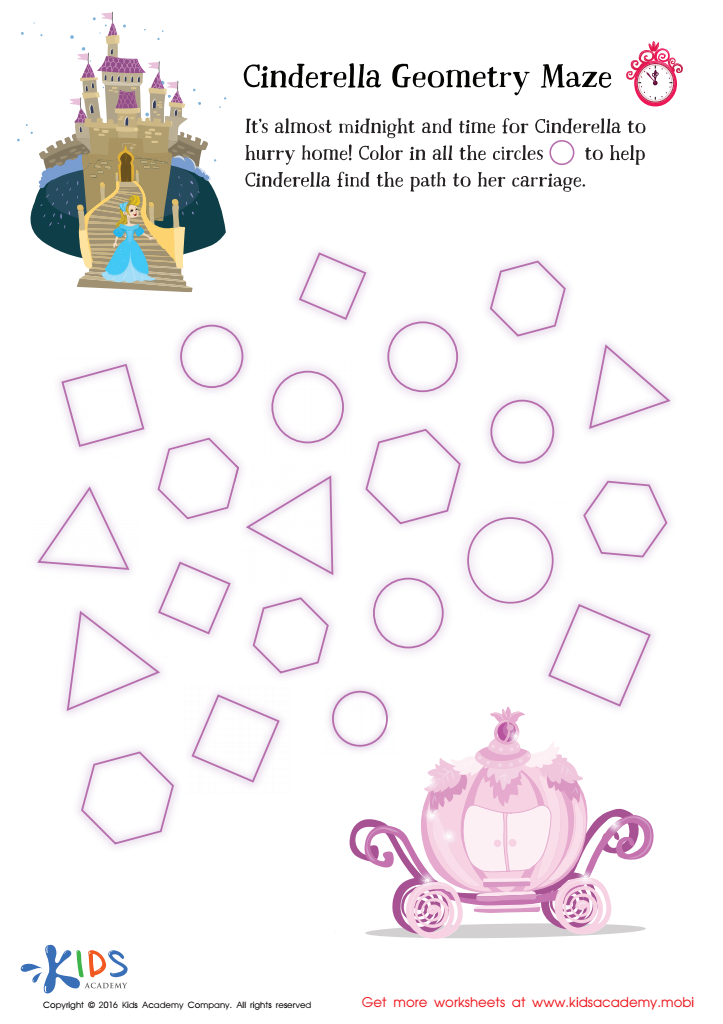

Cinderella Geometry Maze Worksheet


Preschool Geometry Match Up Worksheet
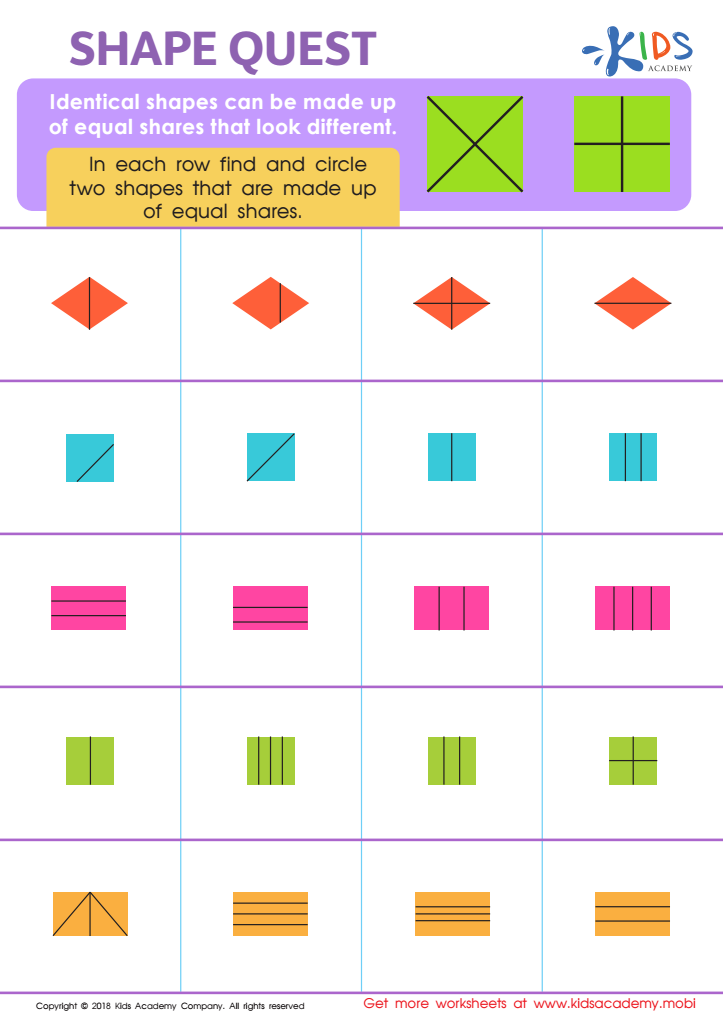

Shape Quest Worksheet
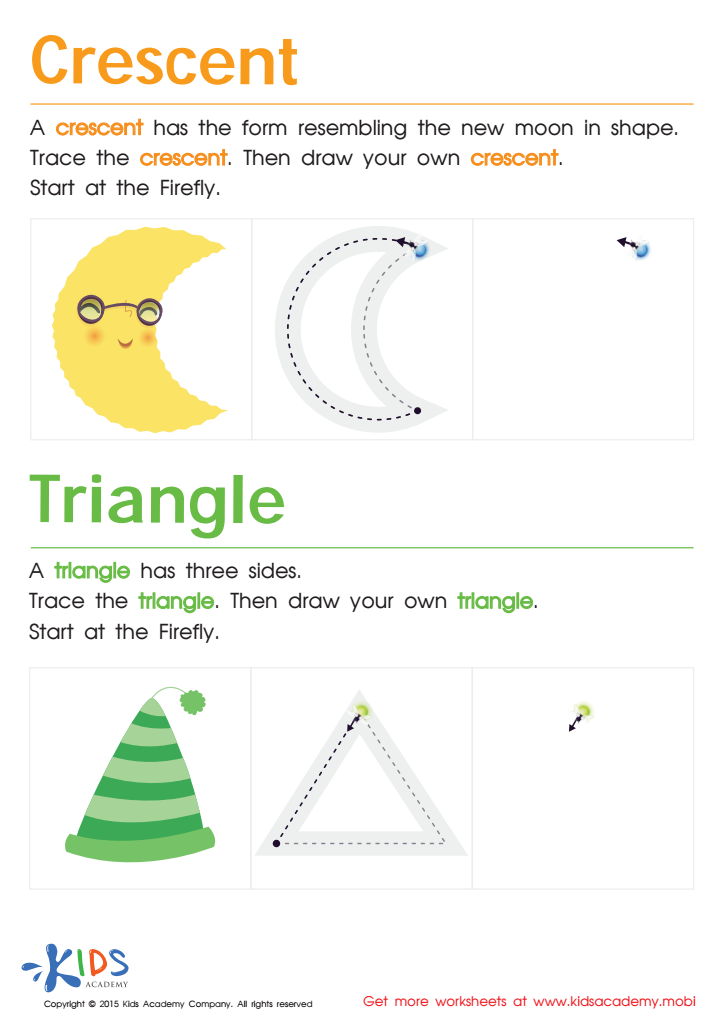

Learning to Draw Crescents And Triangles Worksheet
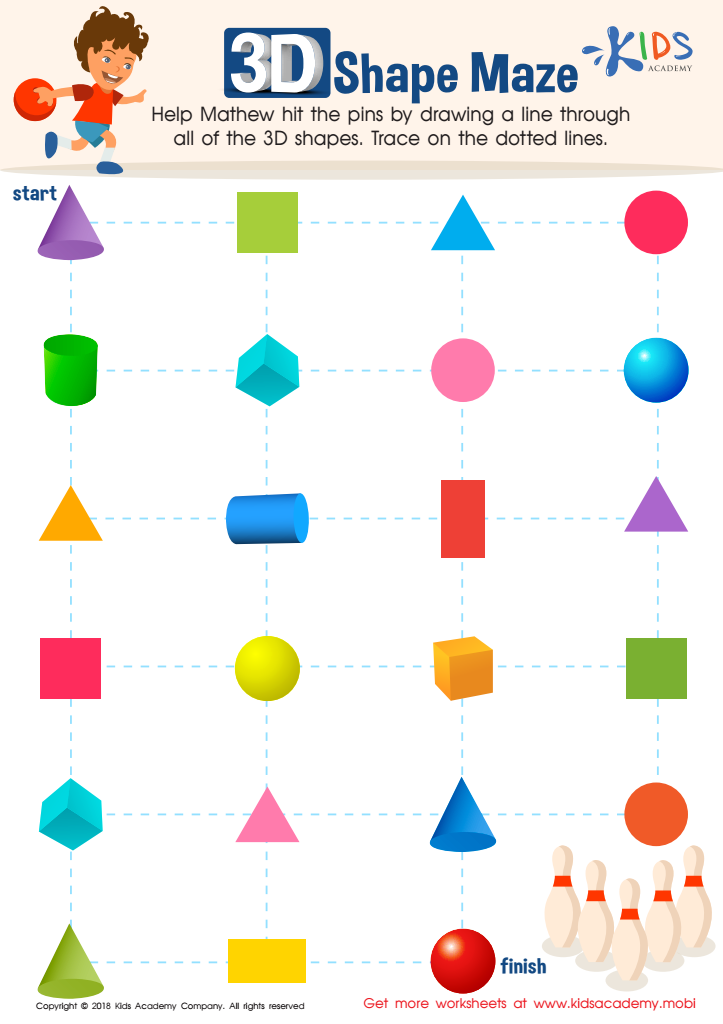

Shapes Maze Geometry Worksheet
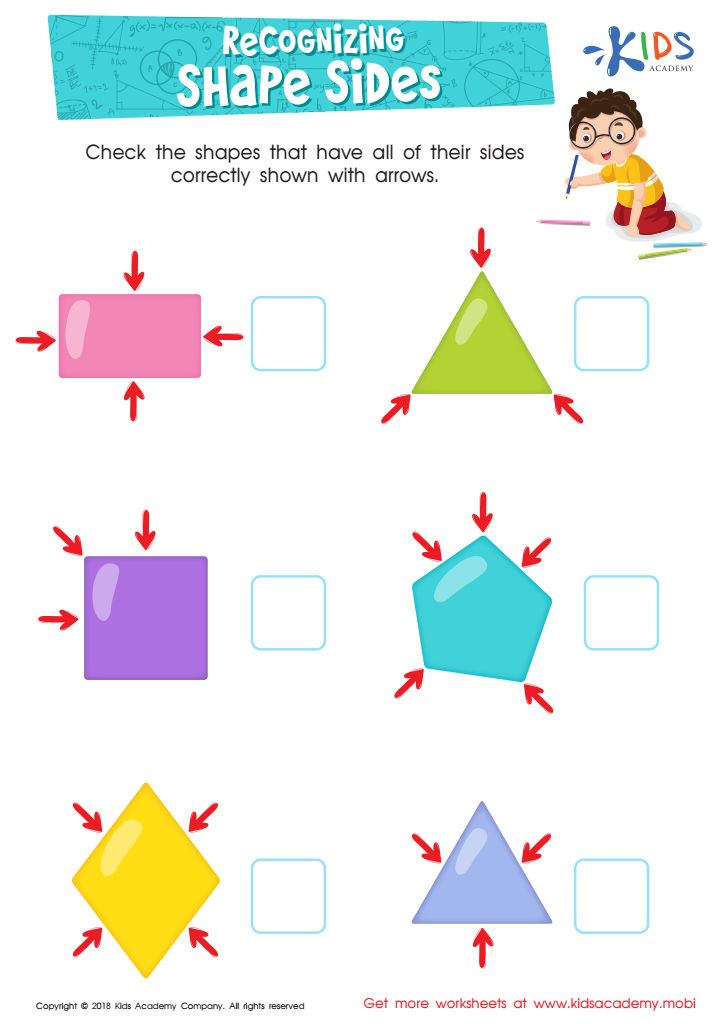

Recognizing Shape Sides Worksheet
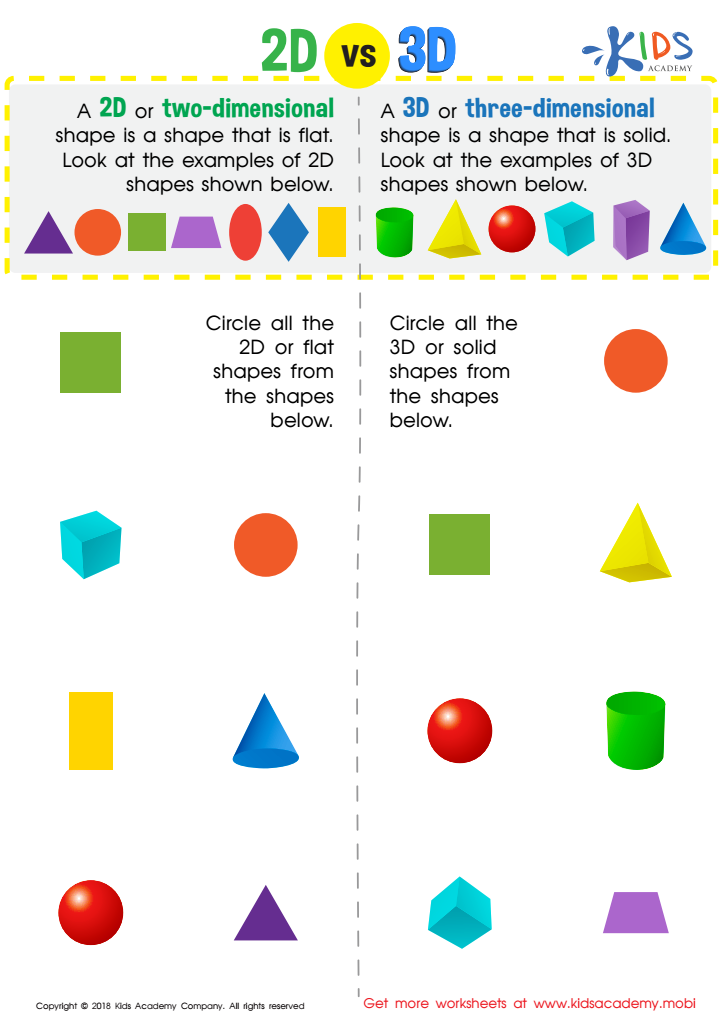

2D vs 3D Shapes Worksheet
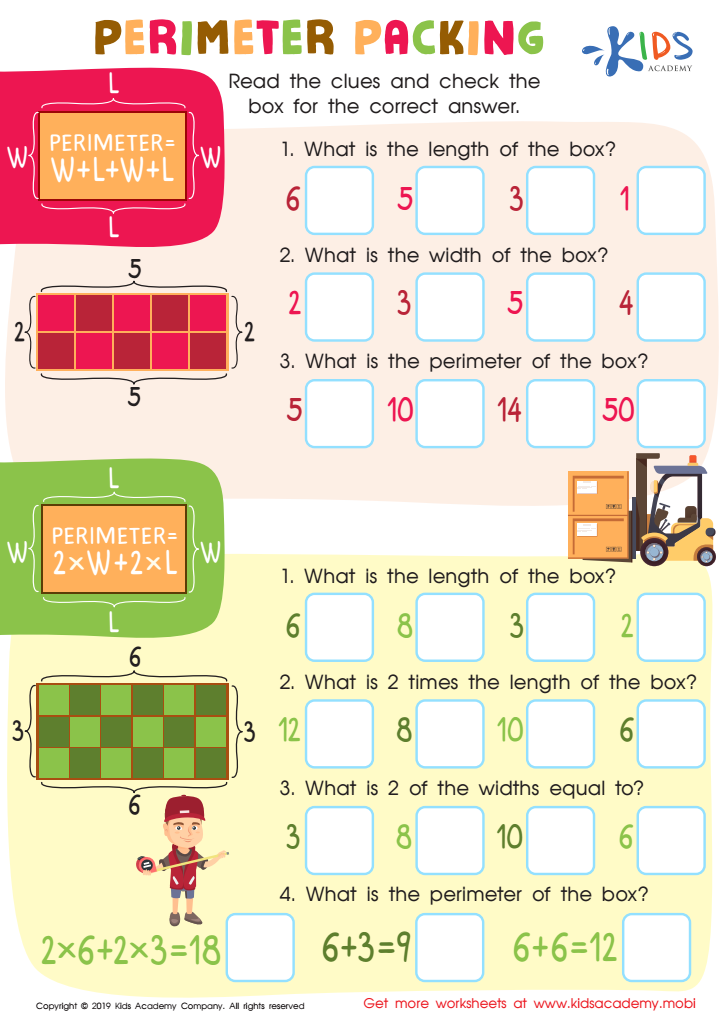

Perimeter Parking Worksheet
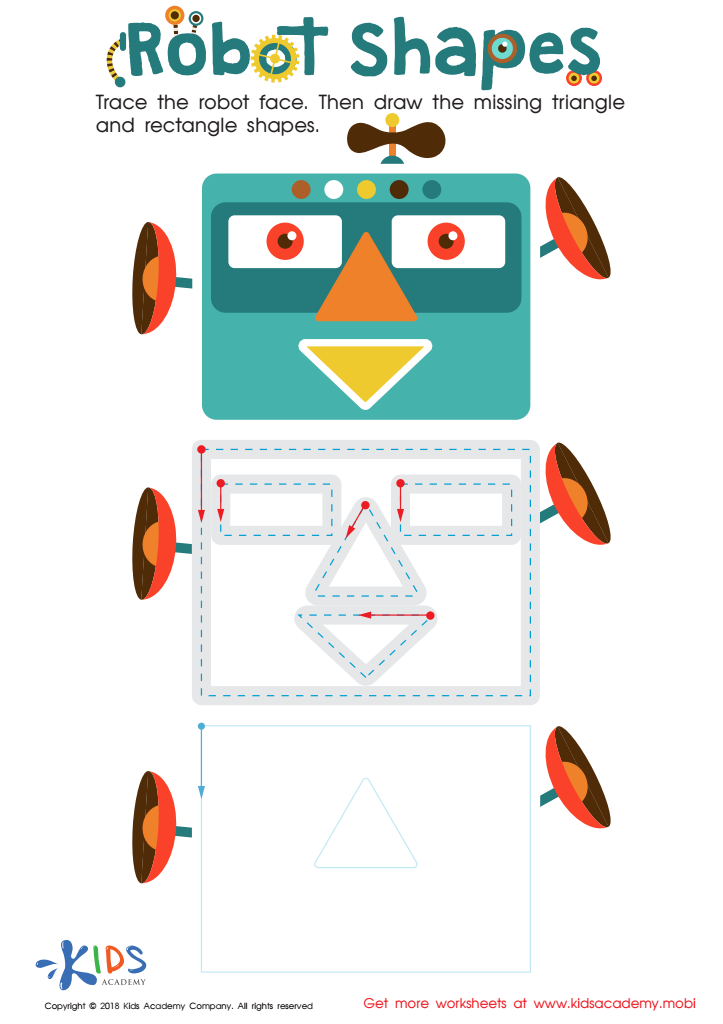

Robot Shapes Worksheet
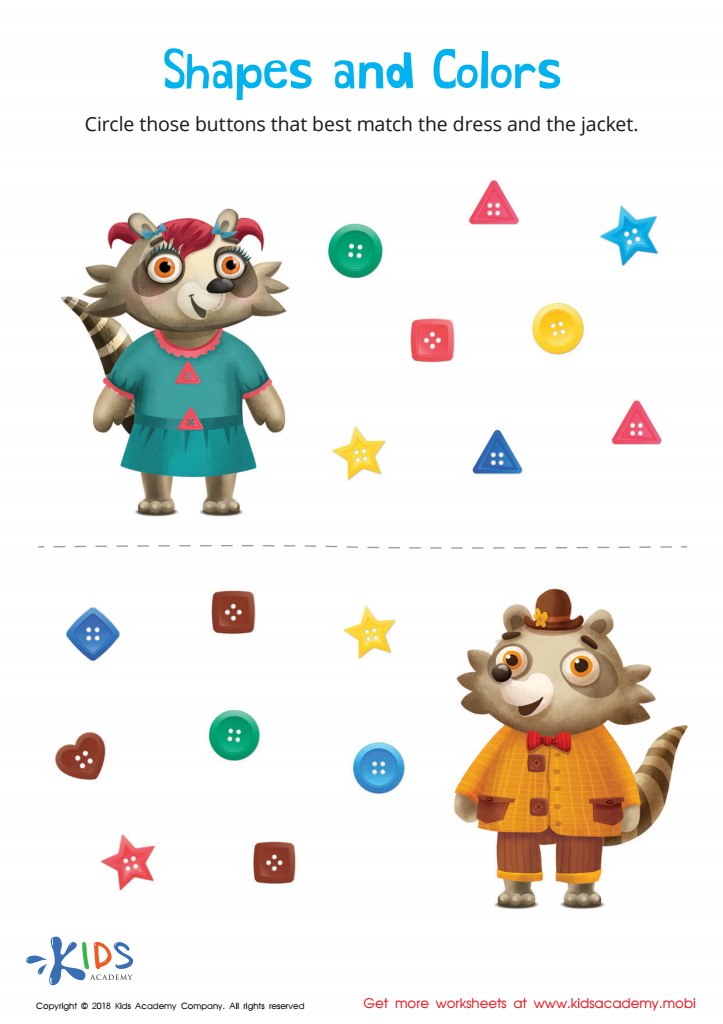

Shapes and Colors Worksheet
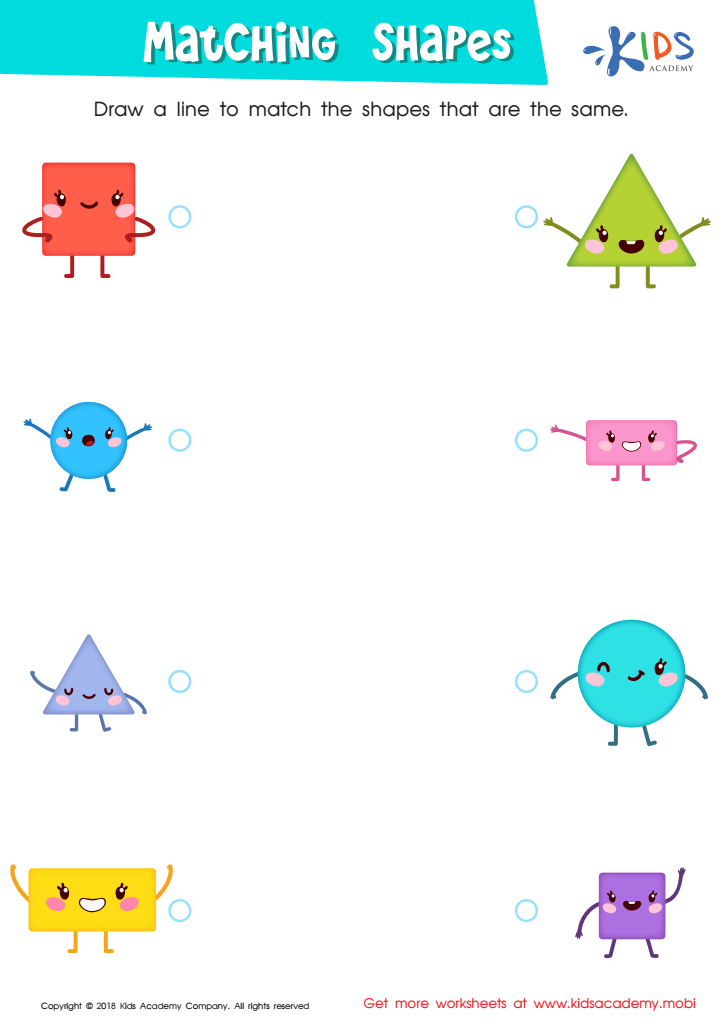

Matching Shapes Worksheet
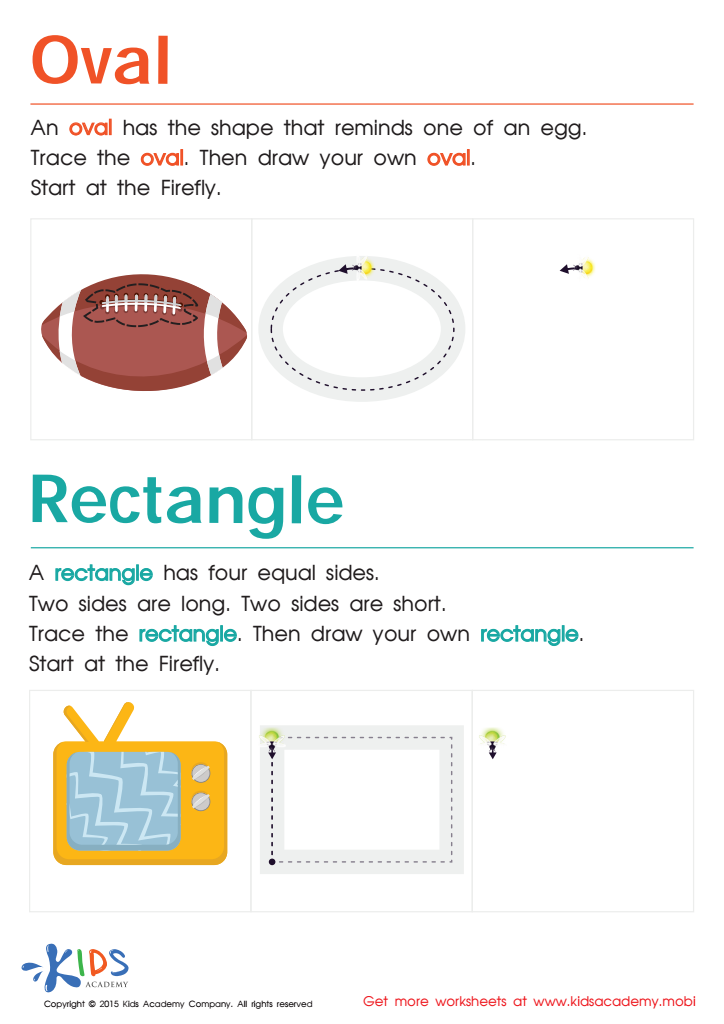

Easy Drawing of Ovals And Rectangles Worksheet
Shape recognition and general geometric understanding are foundational skills for young children, significantly impacting their cognitive development and academic success. For ages 3-9, learning to identify and understand shapes is crucial for several reasons.
Firstly, recognizing various shapes enhances visual perception, an essential skill for decoding and processing visual information effectively. This skillset supports literacy as children apply shape knowledge to distinguish different letters and numbers. For instance, differentiating between ‘b’ and ‘d’ involves recognizing specific arrangements of lines and curves.
Secondly, geometric skills lay the groundwork for more advanced mathematical concepts. Basic shape recognition introduces children to the idea of spatial relationships and properties, which directly correlates to learning more complex topics like fractions, symmetry, and geometry in later academic years.
Thirdly, daily problem-solving requires an understanding of shapes. When children play with puzzles, build blocks, or even cut out shapes in arts and crafts, they are honing their problem-solving and fine motor skills. These activities help them understand shape properties and relationships creatively and enjoyably.
Lastly, fostering these skills promotes logical thinking and categorization, which are important for cognitive development in various subjects. By caring about geometric education from an early age, parents and teachers empower children with the tools necessary for educational achievement and everyday problem-solving.
 Assign to My Students
Assign to My Students










